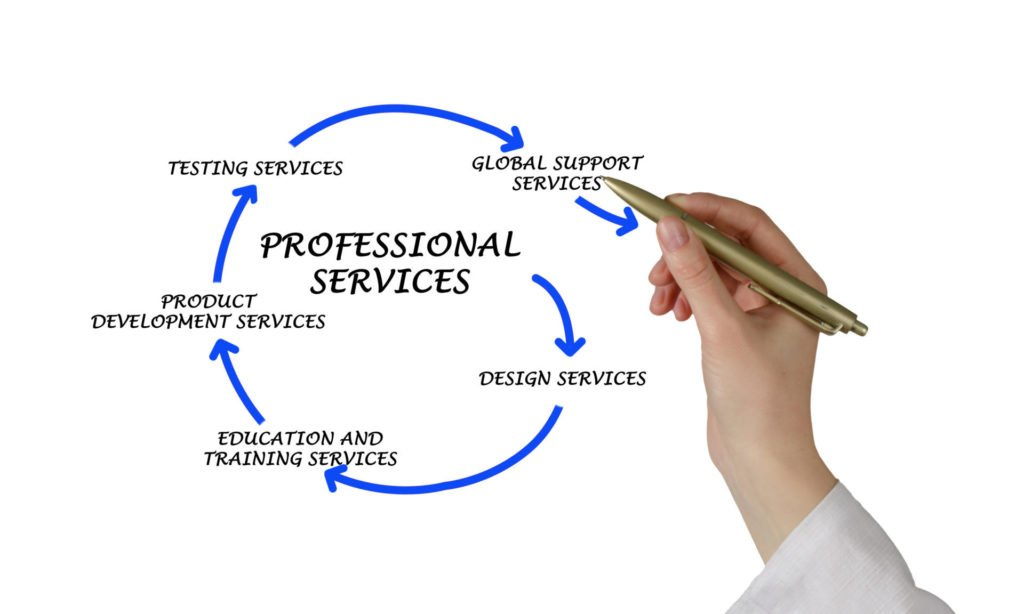Professional services encompass a wide range of occupations requiring specialized knowledge and skills, such as IT, management, consulting, and more. These services are crucial for various sectors, providing expertise and insights that drive business success. Examples include roles like professional services consultant and manager, which involve high-level judgment and decision-making. The industry is diverse, covering fields like engineering, architecture, and legal services, each demanding specific qualifications and expertise. Understanding professional services is essential for leveraging their benefits, including improved efficiency, innovation, and competitive advantage. As the sector continues to grow, staying informed about its dynamics is vital for businesses and professionals alike.
Introduction to professional services
Professional services are diverse in nature, ranging from IT to management and consulting, among others. These groups need to be effectively managed by a qualified person, usually known as a professional services manager, so that services are rendered accurately.
These professional services firms or agencies attend to an awfully wide range of service industry needs, from business automation to legal advice. Among these are complex roles such as a professional service consultant, who is required to be specialized and an expert in the informational aspect of the domain.
Defining professional services
The professional services sector represents companies whose core business is developing knowledge and skills. It provides services for consulting, management, and IT. They are called professional services companies or businesses and operate with professionals and expert workers.
Roles vary from professional services managers who oversee the running of operations to consultants who provide specialized advice to the client. Professional services automation is used to streamline these processes to make more results possible.
The importance of professional services
The professional services add insight to the economy by becoming specialists in functions related to management, IT, and consultancy. They help businesses face complex challenges related to functions and sectors.
Professional services automation ensures operations are more organized and therefore more efficient. At the same time, professional services organizations help to effectively manage resources. This channel also generates employment and contributes to the job market.
When conducted by the most professional consultants or agencies, professional services play a fundamental part in any thriving economy or business.
Types of professional services

Key industries in the professional services sector are those that offer client businesses support and expertise: IT services, management services, and consultants. IT services mean the responsible and strategic direction of technical resources to meet business challenges. More often than not, these services come from special professional services makers or consultancies in technology and IT.
Generally, management services deal with the improvement in the business strategy and efficiency by deploying specialized knowledge, offered mostly by professional services firms or professional services organizations.
On the other hand, consultants would provide expert advice in special areas, with the army assisting the business in matters of financial planning, marketing, HR management, and technology.
These industries, therefore, become very key to the service sector by playing such an integral role in companies and finding solutions to viable problems in business, hence ensuring the wheels of commerce keep moving.
Professional service jobs may go by the names: professional services management, or professional services consultant, or professional services managers in various areas of specialisations.
Consulting services
Professional service providers are one of the key assets for the fiercely competitive service sector today. These services proffer consultancy and specialized knowledge that keep these businesses afloat and at the top. Such service providers are IT services, management services, and solutions customized as per the requirements of the organization.
The professional services sector consists mainly of organizations that have knowledge in diverse fields, such as professional services organizations or professional services management. They always apply a consultative style of management, and business effectiveness is integrated into their system.
The professional services manager or consultant for professional services is one very critical position in assuring that this industry becomes successful. The strategic consultation for the business in a professional way sets a pathway toward the objectives, i.e., the strategic directions and attitudes in which the business is supposed to grow.
Legal services
In the professional services industry, Legal services assume a chief role in managing numerous issues. Professional services organizations, including legal firms, provide expert advice based on specialized knowledge. Often These Organizations have professional services managers who oversee the coordination and execution of their services.
Legal professional service providers offer a wide range of services like consultations, management Services, and IT services. These professionals have a pivotal role in the service sector, offering advice and actions based on their expertise in the legal field.
Accounting services
Our company offers A variety of Accounting services tailored to meet the unique needs of the professional services industry. We aim to provide connectivity, transparency and compliance for professional services organizations and Professional services Providers. Our services guarantee informed financial decision-making and improved business performance.
We work with professional services firms to deliver a full range of IT Services, management services and consulting. Our team of experts combines specialized knowledge and innovative tools to help streamline processes, reduce costs and enhance productivity.
Whether you're a professional services manager, a professional services consultant, or You're Involved in professional services automation, our accounting services will help you stay ahead of the curve in the fast-paced service sector.
Marketing services
In the professional services industry, marketing services can truly set apart a firm From the competition. As professional services providers strive for growth, they look towards strategies That emphasize Their specialized knowledge and expertise.
Key roles in this regard include the professional services manager and professional services consultant. These positions integrate IT services, management services and other resources to deliver comprehensive solutions.
Professional services organizations and firms, therefore, Largely Benefit from effective marketing services that Not only attract new clients but also Maintain and grow relationships with existing ones - the bedrock of success in the service sector.
Key characteristics of professional services

The professional services industry highlights very specialized knowledge and solutions based on experience in a wide spectrum of fields. It includes all firms providing professional services, such as legal services, IT solutions, consultancy, and architecture firms, among others.
The defining features include highly professionalized and highly skilled members who deliver customized outputs, typically done through clients' relationships.
Usually, professional service providers bill clients in different markets for the time and knowledge of their staff. These companies are heavily controlled in the provision of their work, with much of the success riding on the quality, integrity, and reputation of the professionals it employs. Their work efficiency and effectiveness can be increased with the implementation of technologies like professional services automation.
Management of a professional service firm therefore deals with the balance between satisfaction of the customers, management of resources, and profitability. The roles in professional services management are hence very important and complex. They develop strategies and control the delivery of specialized services in a firm in order to meet the business objectives in a fluctuating environment.
Expertise and specialization
In the years I have worked in the professional services industry, my niche skills and specialized knowledge have become well-developed. As a professional services manager, I have been able to develop experience in professional services firm/organization management in the areas of professional services automation and management services.
Additionally, I have worked as a consultant in the service sector for deep experience providers of professional services. I boast wide experience in many jobs related to professional services, with IT services taking the lead. This situation makes it easy for me to offer complete solutions for a variety of business challenges.
Client relationship management
The importance of client relationships in the professional service industry is high. Professional service firms provide specialized knowledge and management services to the client mostly through interaction.
They are, therefore, expected to build and maintain healthy and positive relations to ensure that clients are satisfied and motivated to always come back. This is through understanding their needs and objectives, great IT service delivery, keeping in touch proactively, and problem-solving; the key to great client relationship management.
Quality of service
In the professional services industry, the quality of service (QoS) is a critical success factor. QoS reflects how well a professional service provider or organization delivers its services in line with expectations and standards. Professional services firms, management services, and IT services organizations must prioritize their QoS to effectively meet client needs.
QoS in professional services centers around specialized knowledge, consultants’ expertise, and efficient professional services automation. By prioritizing QoS, professional service providers ensure optimal management and client satisfaction, leading to superior outcomes in the service sector.
Role of technology in professional services

Technology plays a pivotal role in the professional services industry. It expedites essential operations such as client communication, project management, and service delivery, ensuring The provision of High-quality services. Professional services providers, now more than ever, are leveraging innovative digital tools to improve their efficiency.
Technologies like professional services automation software have become crucial in managing workflows and tracking processes within firms. Moreover, IT services and consultants provide specialized knowledge to solve complex technology-related problems, enabling organizations to enhance their competitive position in the service sector.
Use of Bonsai for task management software

Bonsai's task management software is a powerful tool for agencies and professional service providers looking to optimize their workflow. This overview demonstrates how Bonsai's task management capabilities can be a game-changer for agencies and professional service providers, providing them with the tools they need to manage their tasks effectively and efficiently.
Use of Microsoft dynamics 365 for service management
Microsoft Dynamics 365 is a vital tool in the professional services industry, streamlining service management tasks for professional services organizations. Deploying dynamics 365 tools Aids Professional services firms in achieving efficient service delivery while maximizing profitability. Its capabilities cater directly to the needs of various roles such as IT services, consultants, and professional services managers.
The use of specialized knowledge by intelligent automation in Dynamics 365 helps to optimize operations in this service sector. Tasks assigned to professional Services Providers become easier to handle using this system’s service management features and, hence, improving customer satisfaction rate.
Benefits of Salesforce for customer relationship management
Professional services providers across the globe are increasingly leveraging Salesforce for effective customer relationship management (crm). Salesforce enhances the service sector by providing integrated, innovative solutions Which are Essential for professional services management. It leverages specialized knowledge to drive customer engagement, success, and growth.
Customization, scalability, and accessibility are the hallmarks of Salesforce's CRM. These features render it a preferred choice among professional services firms. Some advantages include:
- Improved communication and collaboration across departments.
- In-depth customer insights Leading To more effective strategies.
- Automation of routine tasks resulting in enhanced productivity.
Whether It's For professional services consultants or Professional services Agencies, Salesforce delivers a powerful, comprehensive CRM tool to the professional services industry.
Challenges faced by professional service providers
Professional services providers face various challenges in today's dynamic market. One significant challenge is the increasing complexity of tasks that require specialized knowledge and expertise. This complexity leads to Higher Demand for training and continuous development, thus increasing operating costs.
Another common issue for professional services organizations is maintaining a steady pipeline of projects. The highly competitive service sector often leads to an unpredictable workflow, causing difficulties in manpower planning and revenue forecasting.
Moreover, employing automation in professional services management has become a necessity To maintain efficiency. However, its Adaptation comes with its own challenges like high upfront costs and resistance from staff.
Managing client expectations
In The professional services industry, managing client expectations Is crucial to Maintain Trust and Facilitate Successful project outcomes. This task Is primarily entrusted To professional services managers who must blend specialized knowledge with effective communication.
Some strategies for professional services organizations in managing client expectations include:
- Setting clear, realistic goals at the project onset.
- Implementing professional services automation tools for efficient tracking.
- Regularly Updating Clients on progress and Adapting To changes as needed.
As a result, professional services providers able to manage expectations effectively often enjoy client satisfaction and retention, thus boosting the firm's reputation and success.
Keeping up with industry changes
The professional services industry is a rapidly evolving Field, with changes driven by new technologies, client demands, and market trends. Staying current is a critical aspect of professional services management, and it requires continuous learning and adaptation.
Professional services organizations, from IT Services To management services, must prioritize keeping abreast of industry shifts. This Can involve:
- Regular training and education for staff, especially around new tools and technologies
- Attending industry events and networking with peers
- Engaging consultants with specialized knowledge to drive innovation and strategy
For a professional services manager or A professional services Consultant, staying updated is essential for survival and growth in this dynamic sector.
How agencies can benefit from professional services
Professional services encompass a wide spectrum of specialized operations. For an in-depth exploration on managing these services effectively, you may check out our guide on Professional Services Project Management. The guide provides valuable insights about various project management strategies and techniques designed specifically for professional services.

Agencies can greatly benefit from the professional services industry. Professional services providers offer specialized knowledge and skills, which can significantly increase the agencies' Efficiency, And quality of work. Professional services organizations also provide management Services, It Services Among Others, that Allow the agency to focus their resources on their core functions.
For instance, a professional services consultant may deliver expert advice on operational improvement While Professional services firms may execute specific Projects, Using their specialized knowledge. This, in turn, can enhance the agency's performance and client satisfaction. Therefore, it is beneficial for agencies to leverage professional services To their advantage.
Access to specialized skills and expertise
Professional services organizations operate in a competitive environment where specialized skills and expertise are key success factors. Whether in management services, IT services, or professional services automation, this normally calls for in-depth specialization that can be learned only through hard, rigorous training and hands-on experience.
The hired professional consultants by professional services providers bear a broad range of professional skills catering to a wide sector of services, from professionals who are heavily conversant with various industry practices, regulatory requirements, and emerging trends.
Businesses dealing with professional services firms benefit from the accumulated experience present in a mature professional team to increase operational effectiveness and strategic decision-making.
Cost and time efficiency
In the professional services industry, efficiency in terms of time and cost is key. Firms, agencies, or organizations in this sector always attempt to operate efficiently. They use management services with specialized knowledge in keeping costs down while still maintaining productivity.
Most of these businesses rely heavily on professional services automation-related tools to increase the effectiveness of the projects. In addition, consumption related to IT services is an important factor to reduce the time that is taken in executing the tasks. The execution of strategies is a step when the professional services manager or consultant would come to play to ensure that the objectives in terms of effectiveness are achieved.
This is an area in which service-based work frequently has the requirement for quality services to be delivered fast and with minimal costs incurred to maintain a competitive edge.
Conclusion: the future of professional services
The professional services sector foresees a promising future with a lot of technological developments and more demand for specialized knowledge. Professional services organizations and providers will make use of IT services increasingly due to the digital transformation and quick pace of development taking place in this service industry.
In this regard, management services need to catch up and apply professional services automation to keep profitable. Therefore, professional services management need to adapt to changes in the future towards innovations and constantly upgrading the skills relevant to the existing professional services which are technology-based in nature.






